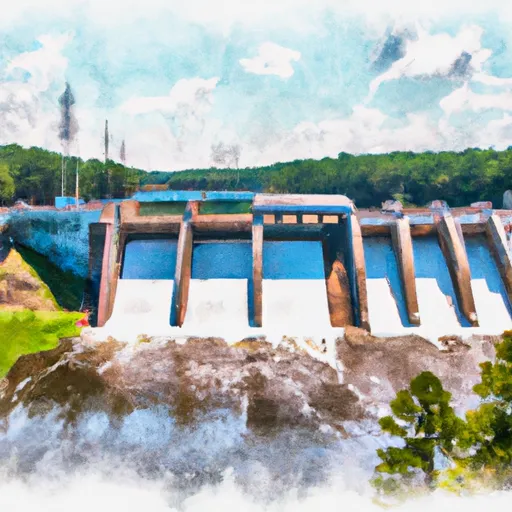Summary
Total streamflow across the
Ocmulgee River
was last observed at
7,938
cfs, and is expected to yield approximately
15,745
acre-ft of water today; about 30%
of normal.
River levels are low and may signify a drought.
Average streamflow for this time of year is
26,116 cfs,
with recent peaks last observed
on
2016-01-02 when daily discharge volume was observed at
146,800 cfs.
Maximum discharge along the river is currently at the
Ocmulgee River At Hawkinsville
reporting a streamflow rate of 3,200 cfs.
However, the streamgauge with the highest stage along the river is the
Ocmulgee River At Macon
with a gauge stage of 7.23 ft.
This river is monitored from 4 different streamgauging stations along the Ocmulgee River, the highest being situated at an altitude of 417 ft, the
Ocmulgee River Near Jackson.
15-Day Weather Outlook
River Details
| Last Updated | 2026-02-20 |
| Discharge Volume | 15,745 ACRE-FT |
| Streamflow |
7,938.0 cfs
+73.0 cfs (+0.93%) |
| Percent of Normal | 30.39% |
| Maximum |
146,800.0 cfs
2016-01-02 |
| Seasonal Avg | 26,116 cfs |
River Streamflow Levels
| Streamgauge | Streamflow | Gauge Stage | 24hr Change (%) | % Normal | Minimum (cfs) | Maximum (cfs) | Air Temp | Elevation |
|---|---|---|---|---|---|---|---|---|
|
Ocmulgee River Near Jackson
USGS 02210500 |
608 cfs | 4.3 ft | -35.66 | |||||
|
Ocmulgee River At Macon
USGS 02213000 |
1500 cfs | 7.23 ft | 0 | |||||
|
Ocmulgee River At Hawkinsville
USGS 02215000 |
3200 cfs | 5.18 ft | 4.58 | |||||
|
Ocmulgee River At Lumber City
USGS 02215500 |
2630 cfs | 2.87 ft | 11.44 |
Seasonal Discharge Comparison
Maximum Streamflow Discharge
Streamflow Elevation Profile
The Ocmulgee River () is a western tributary of the Altamaha River, approximately 255 mi (410 km) long, in the U.S. state of Georgia. It is the westernmost major tributary of the Altamaha.The Ocmulgee River and its tributaries provide drainage for some 6,180 square miles in parts of 33 Georgia counties, a large section of the Piedmont and coastal plain of central Georgia.The Ocmulgee River basin has three river subbasins designated by the U.S. Geological Survey: the Upper Ocmulgee River subbasin (hydrologic unit code 03070103); the Lower Ocmulgee River Subbasin (03070104); and the Little Ocmulgee River Subbasin (03070105).The name of the river may have come from a Hitchiti words oki ("water") plus molki ("bubbling" or "boiling"), possibly meaning "where the water boils up."

 Lloyd Shoals Dam On Lake Jackson To Georgia State Highway 16
Lloyd Shoals Dam On Lake Jackson To Georgia State Highway 16